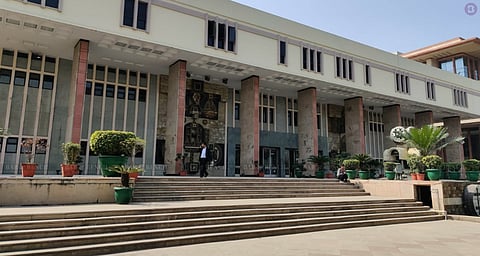
- Latest Legal News
- News
- Dealstreet
- Viewpoint
- Columns
- Interviews
- Law School
- Legal Jobs
- हिंदी
- ಕನ್ನಡ

The Delhi High Court has ruled that a litigant cannot invoke its territorial jurisdiction in a trademark dispute merely because his legal opponent's products are accessible on a website that can be used from Delhi or because a trademark assignment or registration was executed in Delhi [Vikrant Chemico Industries Pvt Ltd v. Shri Gopal Engineering and Chemical Works Pvt Ltd].